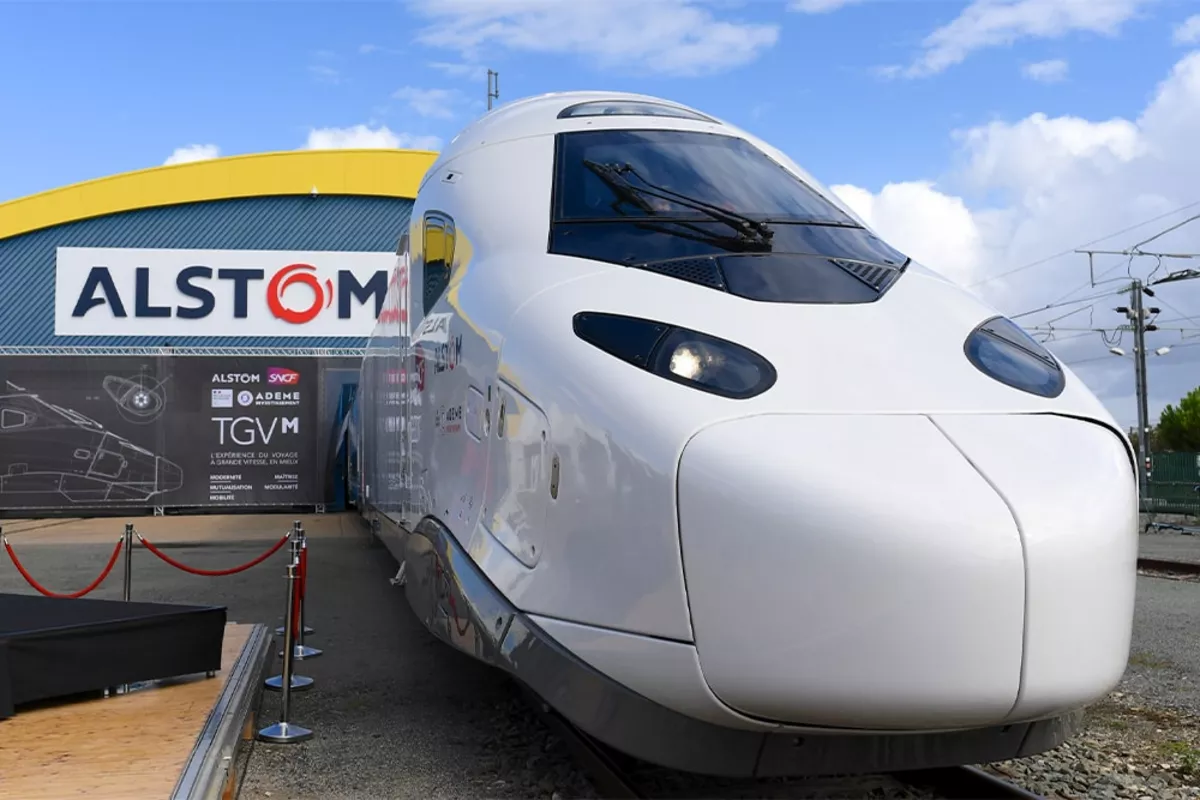
photo: Rail Business Daily
French rail giant Alstom has signed a contract with Turkish company RESA to deliver a rigid catenary system for the Halkalı-Kapıkule High-Speed Rail line, a transformative project expected to increase Istanbul’s passenger rail capacity by 80 per cent and freight traffic by 45 per cent.
The system, to be implemented for the first time on Türkiye’s YHT (High-Speed Train) network, will be installed inside a twin-tube tunnel approximately 7 kilometers long and 8.3 meters wide per tube. This underground section will pass beneath densely populated residential areas and Lake Küçükçekmece, making it a landmark engineering achievement for Istanbul's urban infrastructure, The Caspian Post reports via local media.
Alstom, which operates in 63 countries, has been present in Türkiye for over seven decades. In recent years, the company has deepened its local footprint through major investments. These include the launch of the Alstom Türkiye Engineering and Technology Center in 2023-a global hub for railway signaling systems-and the opening of a rail components factory in Bursa in 2024, which now exports to European markets.
The company also plans to open a Signaling Systems Integration Lab and Testing Center by the end of 2025, marking the first such private-sector facility in Türkiye.
“Alstom’s rigid catenary system will be used for the first time on a YHT line in Türkiye,” said Kerem Bugay, CEO of Alstom Türkiye.
“We’re committed to supporting the development of Türkiye’s rail infrastructure through sustainable, forward-looking investments. While we’re a global brand, we act as a local company.”
Bugay emphasized Alstom Türkiye’s role as a trusted domestic partner with deep sectoral roots:
“With strong local operations and strategic partnerships, we provide end-to-end railway solutions tailored for Türkiye’s mobility needs. Our work supports the national Transport and Logistics Master Plan and the 2053 Net-Zero Emissions Target, while also training the next generation of rail engineers.”
He also noted that components produced in Bursa are already being used in European rail projects. Over the next two years, Alstom plans to expand both production capacity and staffing at the Bursa facility by 2.5 times.
Moreover, Alstom collaborates with more than 25 Turkish suppliers, providing them access to international markets worth an estimated 30-50 million euros annually.
Globally, Alstom has delivered over 150,000 units of rolling stock and employs 86,000 people worldwide. Its expertise spans high-speed trains, metro systems, monorails, trams, signaling, infrastructure, and digital mobility solutions-bringing smart, sustainable transit to urban and intercity networks.
Alstom Türkiye now serves as a regional hub for the company’s activities in Türkiye, Africa, the Middle East, and Central Asia, particularly in signaling and infrastructure development.
Share on social media